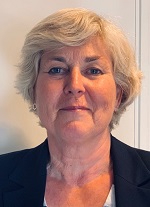The public defence will be held as a video conference over Zoom.
The defence will follow regular procedure as far as possible, hence it will be open to the public and the audience can ask ex auditorio questions when invited to do so.
Click here to participate in the public defence
Due to copyright reasons, an electronic copy of the thesis must be ordered from the faculty. In order for the faculty to have time to process the order, it must be received by the faculty no later than 2 days prior to the public defence. Orders received later than 2 days before the defence will not be processed. Inquiries regarding the thesis after the public defence must be addressed to the candidate.
Digital Trial Lecture – time and place
Adjudication committee
- First opponent: Professor Lis Neubeck, The School of Health and Social Care, Edinburgh Napier University, UK
- Second opponent: Professor Hilde Eide, University of South-Eastern Norway
- Third member and chair of the evaluation committee: Professor Erik Fosse, University of Oslo
Chair of the Defence
Associate Professor Hilde Stendal Robinson, Faculty of Medicine, University of Oslo
Principal Supervisor
Intensive Care nurse/Clinical researcher Irene Lie, Oslo University Hospital
Summary
Telemonitoring, as remote monitoring that involves the patient holds potential to support self-care at home. Identifying and managing heart failure symptoms at home is self-care, a cornerstone when living with chronic heart failure. Self-care impacts on patient’s illness stability, symptom burden, mortality, and use of healthcare services. However, monitoring and managing heart failure symptoms at home is a challenge for patients.
This study presents patients and healthcare professionals’ experiences with and understanding of telemonitoring to support self-care.
Interviews were conducted with patients at a heart failure outpatient clinic. Novel technology was used by patients in Norway and Lithuania for the first time to measure level of lung fluid, congestion. In addition, patients used a diary to register symptom prevalence and burden at home in a feasibility study.
The feasibility of using telemonitoring involved patients with severe heart failure the first month following discharge from hospital to home. Health care professionals` perception of and presumed experience with telemonitoring was investigated in a cross-sectional survey including nurses and physicians in heart failure care.
In general, patients and health care professionals lack experience with telemonitoring. Patients preferred follow-up by telemonitoring if health care professionals at a heart failure clinic are involved. Using novel technology is feasible for patients with severe heart failure for one month following hospital discharge. These patients identified heart failure symptoms, consulted with health care professionals when needed, and their self-care behavior improved after one month using telemonitoring and a symptom diary at home.
Although health care professionals’ have little experience with telemonitoring in heart failure care, they have recommendation of telemonitoring as a supplementary tool to support patient’s self-care, reduce readmissions to hospital and be a part of future heart failure care. However, important prerequisites for using telemonitoring must be addressed such as funding, equipment, knowledge, and guidelines from health care authorities.
Additional information
Contact the research support staff.
